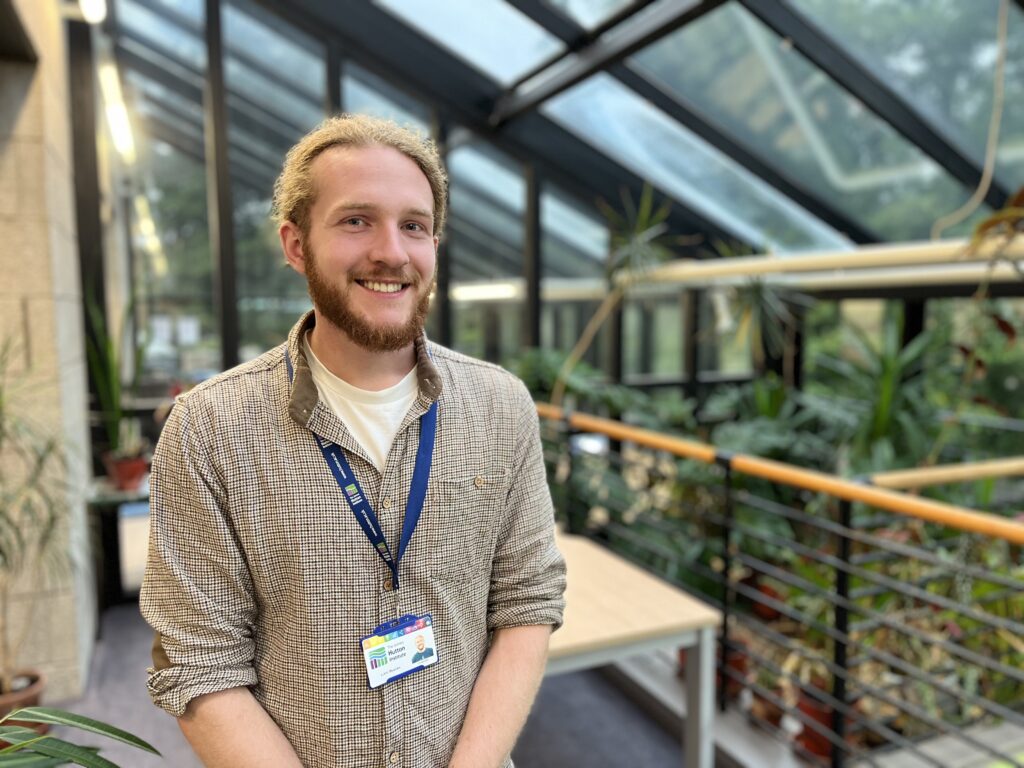New coordinator for North East’s biodiversity partnership
Working together is more critical than ever to support people and nature recovery in the North East, says the new coordinator of the North East Scotland Biodiversity Partnership (NESBiP).
Liam McAllan, who is based at NESBiP host The James Hutton Institute, will support the partnership of 40 organisations in driving “joined-up” approaches to conservation and tackling threats to biodiversity across North-East Scotland.
McAllan is a recent University of Aberdeen conservation biology graduate, where he led the university’s conservation volunteers, and grew up on a farm near Aberdeen.
He says, “While we have a vibrant natural environment here in the North-East, the region isn’t immune. Our seabirds were struggling due to reductions in food availability. On top of that, they’ve been hit with avian influenza. A recent study revealed that Aberdeenshire has suffered more local extinctions of wildflowers than anywhere else in the UK.
“Currently one in nine Scottish species are at risk of going extinct, according to the RSPB’s recent State of Nature report. The numbers can be sobering, but conservation successes like having Red Kites back in our skies show that with positive, evidence-backed actions, many trends can be turned around.
“Through NESBiP, I hope to drive positive change, not only for nature, but other essential benefits. That includes mental and physical health, climate resilience and carbon storage, clean air and water, fresh local food and skills for employment. Through this network of local authorities, environmental groups, community groups and businesses we can allow people to work together for nature recovery, which is more critical than ever.
“Through NESBiP, I hope to drive positive change, not only for nature, but other essential benefits. That includes mental and physical health, climate resilience and carbon storage, clean air and water, fresh local food and skills for employment”
Liam McAllan

“We need to keep working towards everyone feeling welcome and getting chances to support this recovery, and importantly so they can experience the sometimes life-changing rewards of engaging with species and natural spaces.”
The partnership brings together more than 40 local organisations, including environmental and community groups, local authorities and businesses. It is supported by funding from Aberdeen City Council, Aberdeenshire Council, Moray Council, Neptune Energy and Scottish Forestry.
Robin Pakeman, an ecologist at the Hutton and chair of NESBiP’s management group, says, “The partnership continues to evolve to meet changing demands and to look for new avenues of funding. We are very pleased to welcome our new coordinator, Liam, to work with us and to take the partnership forward.”
Roger Owen, the chair of NESBiP, says, “I am delighted to welcome Liam as our new coordinator, and I’m certain he will build on the incredibly effective work of previous people in this role. Our partnership thrives on collaboration with many other actors keen to enhance biodiversity in the north-east of Scotland and Liam is just the person to ensure this co-operation continues to thrive. I look forward to working with him and all the other members of NESBiP as we develop even more opportunities to improve nature and access to it.”
The partnership thanks the previous coordinator, Alex Stuart, for her work. Alex has moved onto work for the University of Aberdeen, but remains involved in the wider partnership network.
NESBiP, which recently celebrated its 25th anniversary, works to highlight the biodiversity crisis and the essential role that local action plays in protecting and recovering our natural environment. Healthy biodiversity is key to mitigating and adapting to the climate emergency.
It has projects underway in Aberdeen City, Aberdeenshire and Moray for wildlife in gardens, parks, school and office grounds, roadside verges and many more.
These projects aim to help animals like bumblebees, which have suffered major declines in recent years. This can be done by providing native seeds for local communities to plant and provide the flowers bumblebees need to feed on. Other actions, like NESBiP’s local school camera trapping project, have been picked up by others and rolled out nationally.
More information on the work of NESBiP can be found at www.nesbiodiversity.org.uk or people can follow its latest activities on Facebook at www.facebook.com/NorthEastScotlandBiodiversityPartnership/.
Read more from Liam, introducing himself in this blog here.
More information:
About The North East Scotland Biodiversity Partnership
The North East Scotland Biodiversity Partnership (NESBiP) is a non-profit making partnership working to protect and promote the biodiversity of North East of Scotland, on which much of our social and economic wellbeing still depends. The partnership’s coordinator and its work is funded by Aberdeen, Aberdeenshire and Moray Councils along with Neptune Energy and Scottish Forestry. The partnership brings together more than 40 local organisations, coordinating their work in protecting the wildlife and landscapes of North- East Scotland. It is hosted by The James Hutton Institute in Aberdeen.
Central to NESBiP’s ethos is collaboration and co-operation with other projects, avoiding duplication of effort and waste of very limited resources.
The partnership can be contacted at nesbip@hutton.ac.uk.
Press and media enquiries:
Elaine Maslin, Media Officer, The James Hutton Institute elaine.maslin@hutton.ac.uk, tel: +44 (0)1224 395076 or +44 (0)7977 805808
October 13, 2023
